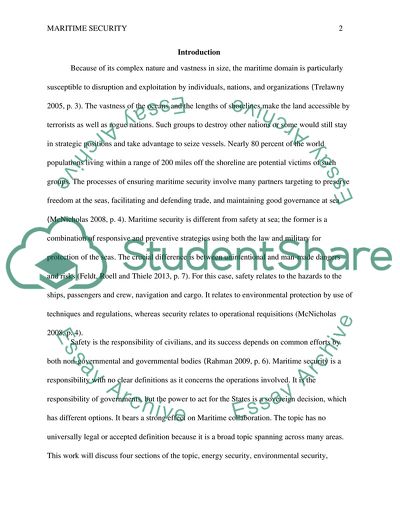Cite this document
(Maritime Security on a Broad Scale Coursework Example | Topics and Well Written Essays - 2000 words - 1, n.d.)
Maritime Security on a Broad Scale Coursework Example | Topics and Well Written Essays - 2000 words - 1. Retrieved from https://studentshare.org/law/1859960-maritime-security-inevitably-embraces-all-the-sub-sets-of-security-studies-in-its-widest-sensediscuss
Maritime Security on a Broad Scale Coursework Example | Topics and Well Written Essays - 2000 words - 1. Retrieved from https://studentshare.org/law/1859960-maritime-security-inevitably-embraces-all-the-sub-sets-of-security-studies-in-its-widest-sensediscuss
(Maritime Security on a Broad Scale Coursework Example | Topics and Well Written Essays - 2000 Words - 1)
Maritime Security on a Broad Scale Coursework Example | Topics and Well Written Essays - 2000 Words - 1. https://studentshare.org/law/1859960-maritime-security-inevitably-embraces-all-the-sub-sets-of-security-studies-in-its-widest-sensediscuss.
Maritime Security on a Broad Scale Coursework Example | Topics and Well Written Essays - 2000 Words - 1. https://studentshare.org/law/1859960-maritime-security-inevitably-embraces-all-the-sub-sets-of-security-studies-in-its-widest-sensediscuss.
“Maritime Security on a Broad Scale Coursework Example | Topics and Well Written Essays - 2000 Words - 1”. https://studentshare.org/law/1859960-maritime-security-inevitably-embraces-all-the-sub-sets-of-security-studies-in-its-widest-sensediscuss.


